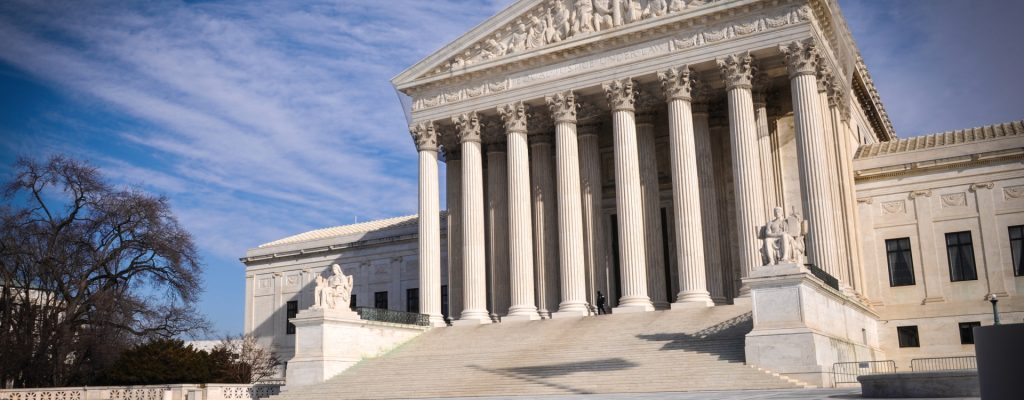
Authored by Mark Lobb
On June 15, 2022, the Supreme Court of the United States (“SCOTUS”) ruled in Viking River Cruises, Inc. v. Moriana (“Viking”) that the Federal Arbitration Act, 9 U. S. C. §1 et seq., preempts California law that invalidates contractual waivers of the right to assert representative claims under California’s Labor Code Private Attorneys General Act of 2004 (Cal. Lab. Code §2698 et seq. aka “PAGA”).
PAGA authorizes any employee to initiate an action against a former employer on behalf of the employee and other current or former employees to obtain civil penalties under California labor laws. PAGA suits are representative actions in which the employee plaintiff sues as an “agent or proxy” on behalf of the state. To bring such a claim, the aggrieved employee has what is referred to as “standing” to serve as the representative and may “seek any civil penalties the state can, including penalties for violations involving employees other than the PAGA litigant herself.” ZB, N. A. v. Superior Court, 8 Cal. 5th 175, 185.
In Viking, the plaintiff, Angie Moriana, filed a PAGA action against her former employer, Viking River Cruises. She asserted a wide array of violations of California law allegedly suffered by her and other Viking employees, which is common practice in PAGA complaints regardless of validity. Moriana’s employment contract with Viking included a mandatory arbitration agreement (the “Agreement”), which contains a class action or representative waiver. The waiver prohibits parties from bringing any dispute as a class, collective, or representative action under PAGA, along with a severability clause. The severability clause specifies that if the waiver is found invalid, the dispute will be litigated in court, and if any portion of the waiver remains valid, that part of the dispute will be enforced in arbitration.
In the state court proceeding, Viking moved to compel arbitration of Moriana’s individual PAGA claim and to dismiss the PAGA claims applicable to the other employees, asserting that Moriana was required to bring her claims individually in arbitration and waived her right to be a representative in a PAGA claim. The motion was denied. The lower court held that categorical waivers of PAGA standing are contrary to California public policy and that PAGA claims cannot be split into arbitrable individual claims and non-arbitrable representative claims.
What is standing?
Standing is basically the right of an individual to bring claims. To have standing the plaintiff must have sufficient connection to the case being brought against a defendant to participate in the case. Under PAGA, an employee who alleges they have suffered a single labor code violation is entitled to use that violation as a gateway to establish standing and assert claims on their own behalf and on behalf of all other employees of their employer. Once they establish their standing, an employee may seek any civil penalties the state can, including any penalties for violations involving employees other than the PAGA litigant herself.
In Viking, SCOTUS ruled that federal law preempts California state law so that PAGA actions may be split into individual and non-individual claims through an agreement to arbitrate. Under PAGA’s standing requirement, a plaintiff has standing to maintain non-individual PAGA claims (claims on behalf of other employees) in an action only by virtue of also maintaining an individual claim in that action. The plaintiff in Viking signed the Agreement which required all of her individual claims to be arbitrated. The only claims in the case not subject to the arbitration clause were representative claims related to the other employees. The plaintiff no longer had standing to pursue those other representative PAGA claims because all of her individual claims were subject to the arbitration clause. As a result, SCOTUS ruled the “correct course was to dismiss her remaining claims.”
What is the takeaway for California employers?
All California employers need to make sure they have valid and enforceable arbitration agreements signed by all employees that comply with California’s strict requirements for these agreements. SCOTUS has not eliminated the effectiveness of PAGA claims in California. However, the Viking decision establishes an employee cannot be a representative plaintiff in a PAGA case if the employee has signed off on a properly drafted arbitration agreement which covers all potential claims covered by PAGA. If your employees are not subject to arbitration clauses or agreements requiring claims subject to PAGA to be arbitrated, your company can still be the victim of a PAGA claim.
Finally, if a company is currently being sued under PAGA, and the representative employee or former employee had signed an enforceable arbitration clause, a motion to compel arbitration should be filed immediately.
Please contact our office at 951.788.9410 and request an appointment through Elaine Rodriguez with one of our lawyers if you would like to have your company’s arbitration clause reviewed for compliance, if you need an arbitration clause drafted for your company or if you have a pending PAGA case.





